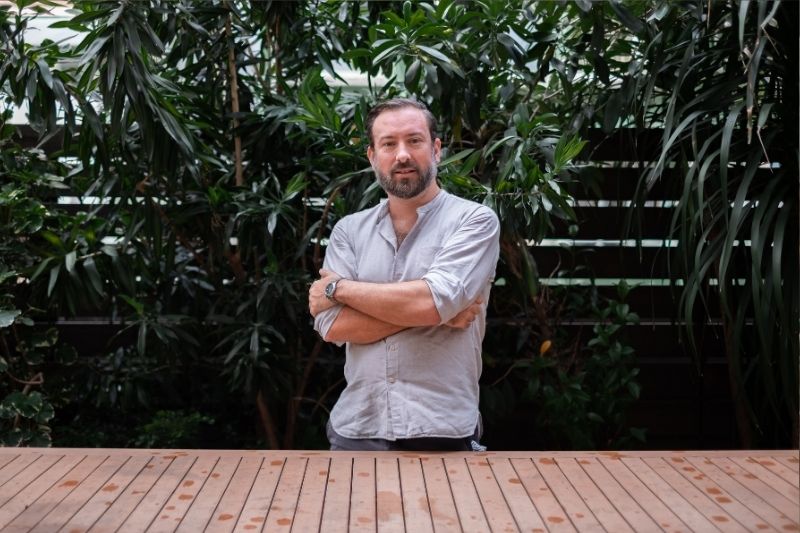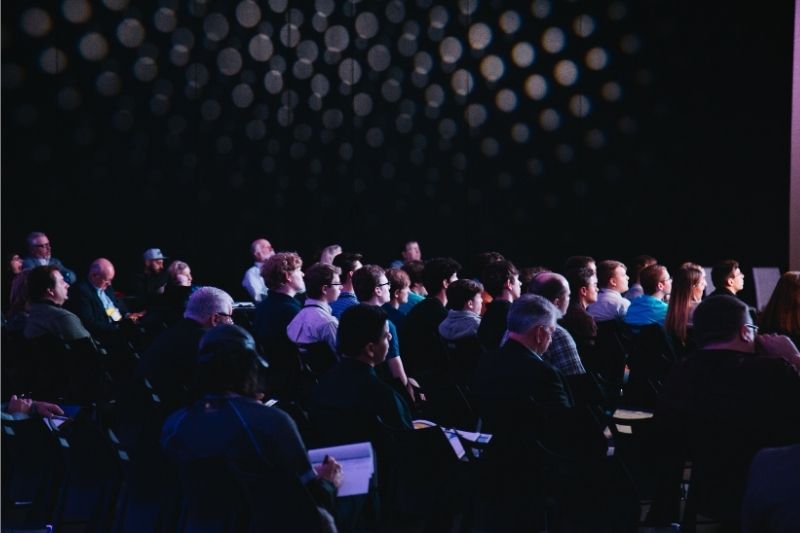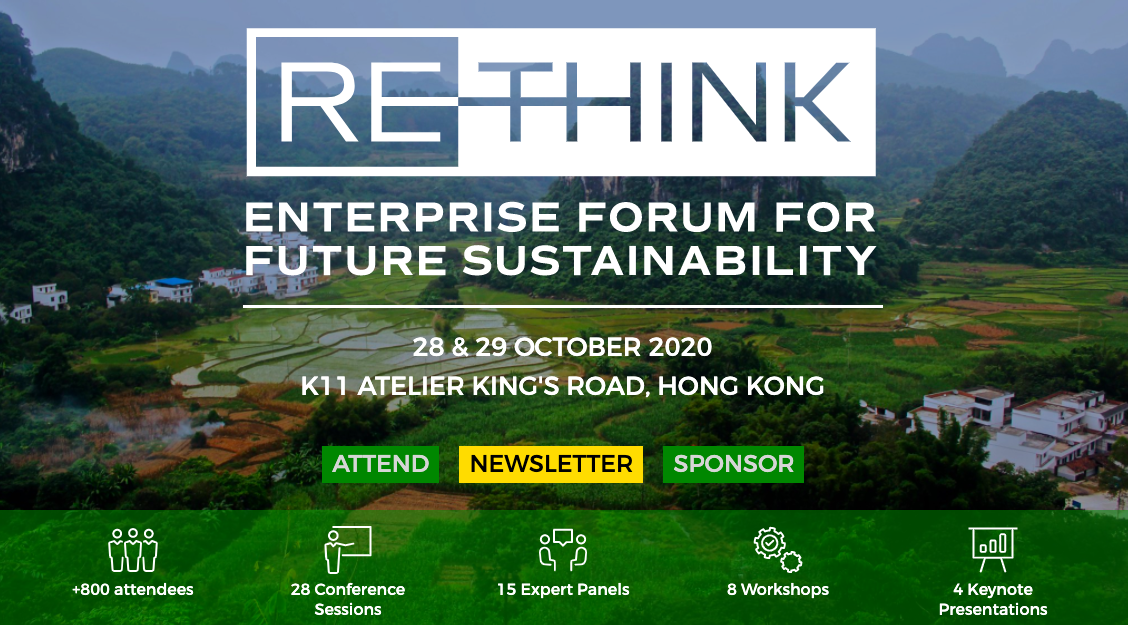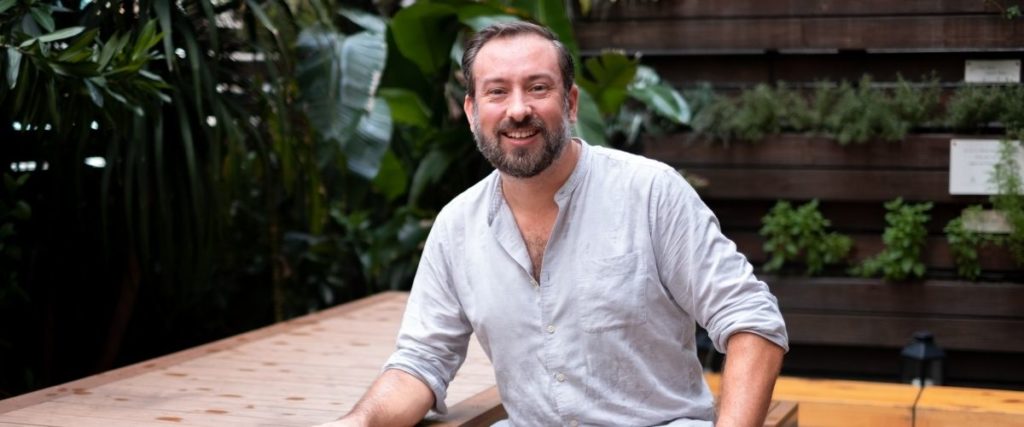Events professional Chris Brown shares what it takes to host a successful event for thousands of professionals, having had over a decade of experience organising high-value business events.
When the situation arose in 2017 for British seasoned event professional Chris Brown to leave his position at CloserStill Media, one of the world’s fastest-growing exhibition businesses, he faced a crucial career choice of deciding what to do next.
With nearly two decades of experience in launching, growing, and running large scale events in international markets, including the UK, Hong Kong, and China, it’s fair to say that British B2B events veteran Chris Brown knows a thing or two about designing a successful event. That’s why, in 2018, he decided to take a gamble, pouring most of his life’s savings into starting his very own company, EnviroEvents HK.
Focused on addressing the challenges that Hong Kong corporates face when trying to integrate sustainability at every stage of their value chain, EnviroEvents is behind ReThink 2020, the “enterprise forum for future sustainability” dedicated to revitalising the sustainability conversation and accelerating the shift towards a circular economy in Hong Kong.
We sat down with the seasoned B2B events professional to learn more about his passion for events, his take on the future of the industry, and his career-honed tips for successful event management.

Hi Chris. What did your career before EnviroEvents look like?
After finishing my degree in International Business and Italian, I got a sales job at a trade exhibition agency in the UK, and our work involved taking British companies to international trade exhibitions that had funding from the UK Government. Individually, we’d work on about 20 events a year, so I was getting paid to go on 20 overseas trips around at the age of 23, working in diverse industries from print and packaging to consumer electronics, bio-engineering, and logistics. It was really amazing and a great opportunity.
I eventually left and joined a trade expo organiser in London – very entrepreneurial, young, and aggressive in terms of growth. They had recently acquired some pretty mature events which they felt, with the right investment, could become market-leading events again, and joined the team running the UK’s largest event for the leisure industry.
Eighteen months after joining, that company was acquired by what is now the world’s largest trade show organiser, Informa. I stayed there for three years, and it was great because I got to live in Central London in my late 20s – it was a lot of fun! Then the management team that had sold to Informa, after a holiday or three, had started up again from scratch, and that’s when they invited me to join them.
After seven years and having been expatriated to HK, the opportunity came to leave as part of a restructure. I was a shareholder so I was able to cash out when the company was refinanced shortly after. A year later, EnviroEvents was born.
What made you decide to go into the events business?
Travelling a lot growing up was definitely motivation for me to choose the career path that I did. My father was the Director-General at a large UK trade association, which held a biennial trade exhibition at the National Exhibition Centre and from an early age, I had the opportunity to help out – or at least I thought was helping out; more likely I just got in the way!
We’d stay for the build-up and the opening of the show – sometimes we’d be there for a week if it fell during holidays. My father remembers that the element of trade exhibitions I was most fascinated the fact that teams would spend one, two, or sometimes even four years designing, promoting, and organising one event that gets built up for only a few days before being taken down. And then you start the process of trying to make it better the next time. That’s the bit of the event equation that I was always and still am fascinated by.

People are talking about how virtual events could be the future. But you seem to be a strong advocate of face-to-face. Why is that?
I’m a firm believer in the power and influence of meeting people face-to-face. Looking someone in the eye and seeing that they understand you, that you have the same values, that you’ve got the same purpose – that’s what sparks collaboration or a commercial relationship. Virtual events have been around for ages; they haven’t just suddenly popped up in the last six months because of COVID. The technology has its advantages, of course, and we’re utilising some of that this year.
Unfortunately, two of our keynote speakers for ReThink 2020 are unable to travel to Hong Kong due to COVID, and so we’ll be live-streaming them from London and Singapore, but, in general, I think the draw of being able to physically see and hear a high-profile representative from a globally recognised organisation that is truly driving change is irreplaceable.
On top of that, you can’t understate the importance of networking. Going to events isn’t just about making new contacts. It’s also about maintaining contact with the people that you’re already in contact with, and events are a very efficient way of doing that because you get to talk to 50, 60, 70 people a day. It’s hard work, but ultimately rewarding.
What are the essential elements of a successful event in 2020?
Firstly, your event has to have a clearly defined purpose. Essentially, an event is a promise. You’re promising your stakeholders that you’re going to deliver X, Y, and Z, and they trust you to do that. It’s not the same as saying, “I can make you a chair in 10 weeks,” because if you’ve got a proven history of making chairs, there’s a pretty good chance that the chair will come out more or less exactly how you want it to. With events, you’re saying, “I’ve got a proven history of designing events, and I’m going to design this event which is hopefully going to be of interest to you.” But, who knows what’s going to happen in 10 weeks time, who will turn up or not? You’re always living the edge of that promise, so you’ve got to be very clear on what that promise is.
Secondly, you’ve got to make sure that the event delivers value for all of your stakeholders. You have so many different stakeholders when you organise an event, from the venue you’re in, to the suppliers, sponsors, delegates, and speakers. You have to develop an open and transparent relationship with each of them and assure them that you can deliver value experience for them individually and collectively. That takes design; you need to know if you’ve got the bandwidth to pull off what you have in mind.
Thirdly, events have to be increasingly sustainable, in terms of the contractors they use, the materials they use to design and build those events, the F&B service providers they work with in terms of reducing waste, and the venues they use in terms of energy efficiency. I think event organisers need to become a lot more conscientious about the impact that they have from the operational side. Obviously, if you’re a sustainability event, you have an even bigger responsibility to practice what you preach.
What’s your approach to budgeting in events?
It is complex, detailed, and culminates in one mega spreadsheet that I probably open 20 times a day. It’s not always about price; it’s also about working with the right suppliers and vendors. In regards to ReThink 2020, we’ve not been able to achieve the level of sponsorship that I had hoped for, and I understand why – it‘s been a difficult period to launch a new event in. Still, I’ve hardly made any changes to the actual delivery of the event. We know we still want everyone to have the experience that we initially promised, and we’re not going to let a slight drop in sponsorship negatively affect that experience. Seeing that it’s our first year, I want people to believe in us, and I want people to see that we are able to deliver what we say we’re going to deliver. Hopefully, that cements their allegiance to us moving forward.

Was pouring your life savings into ReThink a difficult decision to make?
This might sound slightly big-headed, but no, I honestly knew that I could do it. I discovered through my research that there was an opportunity to start a successful events business, but, more importantly, to start it the right way. I hope that people can see that I’ve tried to establish the event and run my business the right way. I am ReThink; ReThink is me, and I genuinely want that to come across. I want to build trust with people and show that we’re able to do this in a way that no one else has attempted to in Hong Kong. It might not necessarily go perfectly in the first year, and bits of it might not quite be right, but that’s okay. When it eventually works the way we want it to, I think we could have something that really sparks change.
What’s one piece of advice you would give to budding entrepreneurs trying to get into the events industry?
Unfortunately, you’ve got to have some capital. To be able to lay down the foundations of the event, you need money, and a lot more money goes out before any starts to come in. Whether it’s from an investor or your own funds, make sure that the money is sufficient for you to be able to deliver what you say you’re going to deliver, but also keep yourself alive and fed. Work out your purpose, whether you’re an events business or anything else. I truly believe that if you can find your purpose, and you put everything you have into delivering that, you will find like-minded people that want to come on the journey with you.
More About ReThink 2020
ReThink is a two-day conference and showcase that will explore and encourage meaningful partnerships, inspire organisational change and present solutions for a sustainable environment and circular economy.
Please note that ReThink 2020 is only open to sustainability practitioners and professional delegates. Click here if you are interested in applying for a delegate pass.
Date: 28th – 29th October 2020
Time: Opens at 8:45 AM
Location: K11 ATELIER King’s Road, 728 King’s Road, Quarry Bay, Hong Kong
Related Articles
Chris Brown: Rethinking Corporate Sustainability in Hong Kong





